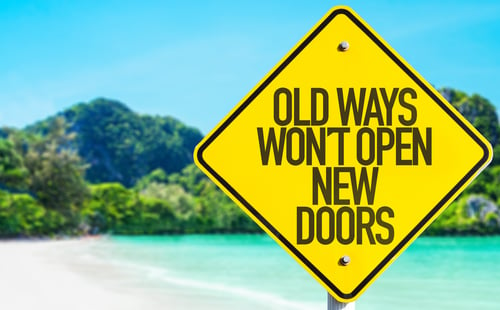
There is no denying that we are living in a brave new digital world that dominates virtually every aspect of our lives. This of course has had a massive impact on not only the ways we sell products and services but also how we compensate and reward our salespeople. The old sales incentive models just won’t work in today’s virtual environment. It’s time to do some serious updating if you’re using an outdated plan. But where do we start?
Sales Incentive Models for Today
Recently, McKinsey & Company released an article addressing the issue of outdated sales incentive models. The article contends that salespeople are being confronted with an unprecedented array of new challenges in the online and digital environment. McKinsey suggests that companies should develop new, thoughtful compensation models that provide clear motivation for how a salesforce can continue to sell effectively in the digital age.
McKinsey suggests the following building blocks are needed to address today’s most pressing challenges:
- Role-specific incentives - Companies will need specialist sellers who can help with complex sales as well as solution architects who can provide technical knowledge for digital products. Other roles to consider are customer-care experts and advisory salespeople who can provide presale guidance to customers on what types of solutions to buy.
The company should then identify the desired goals and behaviors for each role and motivate employees through varying models of compensation. Such compensation could be a salary plus a bonus plan that is based on overall team performance and/or feedback from frontline sales on how helpful someone has been in the sales process.
- Split incentives - With more salespeople involved in any given deal, it is critical that everyone works together in the most efficient and conflict-free way. This starts with sales managers configuring clear rules of engagement that spell out what roles will team up on which deals, how teaming will be orchestrated, and how each person will be credited for his or her work. There should also be a governance process for assessing team-member contributions and arbitrating potential disputes over-crediting.
- Presales incentives - To help the salesforce stay motivated over extended sales cycles, companies can reward interim progress on long deals by allowing reps to collect commissions before the close of the sale. At the same time, continued effort can be encouraged by offering a disproportionately large payoff at the final closing of the deal.
- Omnichannel incentives - One approach is to reward reps or channel partners for their involvement in online sales and to give credit to them for doing what digital tools cannot: being consultative and persuasive in the early stages of the buying process.
- Advanced analytics-based target setting - Forecasting customer demand and setting goals and quotas requires analytics and big data. These tools can add an unprecedented level of accuracy and granularity to sales projections, sales goals, and salesforce quotas. This will allow for the development of fairer goals and a more motivated salesforce.
The Flexibility Imperative
Now more than ever, your sales incentive program will need to be ultra-flexible and adaptable. As sales compensation models become increasingly complex, you will need a technology platform that can constantly adjust to your ever-changing requirements and growth needs. Flexibility is what we do. Call us today to get started.


